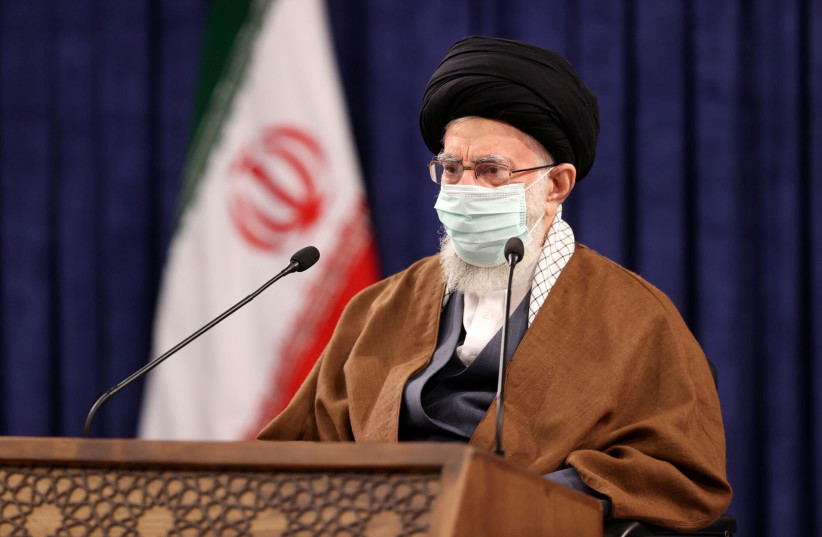If anyone is mystified about how Iran has managed to withstand US and EU sanctions and seems unconcerned about its current conflict with the IAEA, its key ally, China, is no mystery.
On Wednesday, it was reported by Reuters that China had received a new shipment of nearly 2 million barrels of Iranian oil in the past week alone at a southern port, according to shipping trackers, with one tracker saying the cargo is destined for state reserves.
That’s two million holes in an effort to pressure Iran Supreme Leader Ayatollah Ali Khamenei back into the 2015 JCPOA nuclear deal.
The 260,000-ton cargo, carried by vessel Dorena which is owned by the National Iranian Tanker Corp (NITC), was discharged at Zhanjiang port, according to shipping tracking specialist Vortexa Analytics as well as US advocacy group United Against Nuclear Iran (UANI.)
Earlier in June, UANI said that China has paid Iran $22 billion in oil purchases since US President Joe Biden took office.

US looking the other way
Some of these circumventing sanctions have been the US looking the other way so as not to antagonize Beijing beyond the areas where the two countries are already in a trade war and facing off in a technological race.
But some of it has been the Chinese being extremely clever at avoiding being tracked.
First, dating back some years, the Chinese have been creating large numbers of smaller firms to join in the oil import business.
These small firms are much harder to name, notice and track, even if in some broader way they are being encouraged by the invisible hand of the Chinese government to assist Khamenei.
Second, China and Iran have developed a new fleet of old ships which operate and travel without insurance. With some more advanced ships, they are sometimes shutting off the ship's transponders until after an illegal-sanctioned delivery is made and then switch back on for the legal deliveries.
Third, they are doing creative business exchanges using Chinese yuan or informal forms of barter to avoid the global financial system where the Islamic Republic is currently essentially banned.
Finally, they are mixing in Chinese oil formally or informally with oil coming in from the UAE, Oman, Malaysia, Iraq and others.
All of these methods seem to have been in the works for years to help undo each of the key obstacles that the oil sanctions regime presented for china-Iran trade from 2012-2015.
Back in 2018 when the Trump administration first pulled out of the JCPOA and reignited sanctions, Beijing was still intimidated by the idea of a longer and broader trade war with the US.
However, now China is no longer deterred and has embraced direct competition with the US for economic global supremacy, including trying to break the global financial system into smaller pieces, where it can dominate and more easily avoid US pressure.
Earlier this week, the US even extended sanctions to a series of new Chinese, Iranian and UAE companies.
But few analysts think this will move the dial enough to alter Khamenei’s basic direction of staring down the West to get more concessions or to avoid a deal entirely, but appear open to one so as to avoid a military strike.
Tehran's dream: Ignore the West
This is Iran’s dream: a world where it can completely turn East and simply ignore the West.
Of course, Tehran also has significant support from Russia, and other key countries like India and a variety of other smaller countries.
But of all of those nations, it is China, more than any other country, which is making it almost impossible for Western pressure to crack Khamenei’s resistance to a return to the JCPOA, let alone to making concessions which Israel would need to feel secure.
